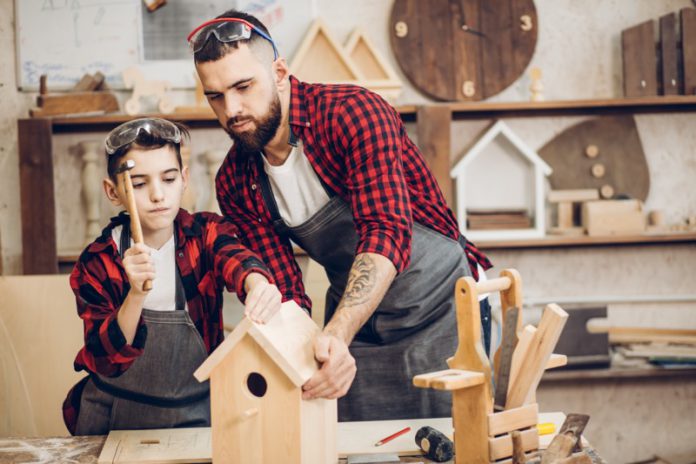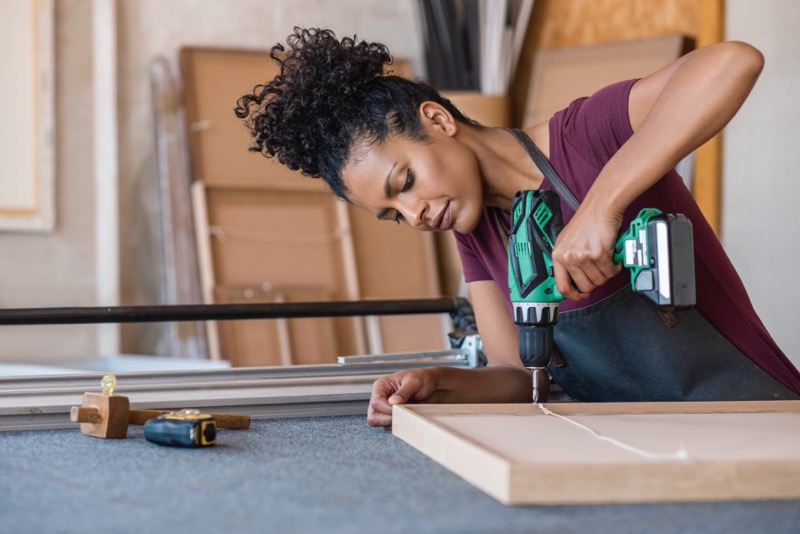
Working with your hands is always a great time to unwind. There’s this relaxing feeling when keeping yourself busy by creating something with your hands. Whether the result looks good or not, what matters more is that you made it, and that thought alone often leaves craftsmen with a deep sense of satisfaction.
For those who are interested, it’s impossible to dive right into it without the proper tools. Although there are skills that only require your hands and materials like origami, skills that need you to exert more effort require some tools to mold your chosen material better. Woodworking is a prime example of that.
Although it’s not as hard as steel, wood still possesses a level of sturdiness, so your hands can’t easily chip into it. Therefore, you’ll need tools to manipulate the wood the way you want it to, whether the base material is big or small. However, if you’re planning on a timber furniture project, you’ll need all the tools in your arsenal to make it come true.
Yet because you’re just starting, you might dive straight into going overboard when preparing these tools. After all, beginners think it’s better to be overprepared than underprepared. Unfortunately, as diligent as that makes you out to be, spending that much money on tools in bulk isn’t the right move.
While you might consider it an ‘investment,’ you’ll discover that you won’t use that many tools except for the essentials. Moreover, buying that many tools while you only plan to make woodworking a casual hobby might leave the rest decommissioned because you won’t be using them frequently. So, in the end, getting only the essential tools is an excellent start for your woodworking journey. What you need always falls under the following categories:
1. Cutting
Although there’s nothing wrong with cutting up wood the old-fashioned way, data power tools are starting to change every woodworker’s mind. Because they’re powered by electricity, there’s no need to break a sweat when cutting through wood. It also helps that they typically produce cleaner cuts unless you have unsteady hands. As you’re building furniture for yourself, what you might need are:
- Circular saw
- Jigsaw
- Table saw
Circular saws often act as a handy table saw. Therefore, if you want to cut through sheets of plywood, go with either circular saws or table saws. To cut some curves, you’ll need a jigsaw as it’s the easiest to maneuver. Additionally, hardware stores also offer the option to go cordless once you choose the battery-powered jigsaw. You can use it even when you’re outdoors and there’s no power outlet.
2. Measuring
Many appreciate woodworking due to how precise everything is. From cutting down to sanding it out, woodworking can only bear excellent results once you do everything accurately. Therefore, measuring tools are a no-brainer. Fortunately, these tools are in any household, unlike cutting tools. If you want to go into the specifics, what you need are:
- Pencils
- Square
- Tape measure
Admittedly, they’re easy to lose, especially pencils. Thus, it’s highly recommended you get a set of pencils instead of just a few. This way, you’re better prepared if you lose them in the middle of a project.

3. Assembling
Because woodworking is a broad term, you can do all sorts of things as long as your medium is wood. Thus, you might carve something in one second and install something in another. Although wood carving often leaves you working on a piece of wood, installation can be tricky, especially when making furniture. As you might be including other materials or pieces of wood, you’ll need a binding agent to bring them together, such as:
- Wood glue
- Clamps
- Drills
More often than not, the only way to bring pieces of wood together is by inserting nails or screws into them. Although you can cut out holes while nailing them down or screwing, the result might be crooked. So, that’s where drills come in. As for clamps and wood glue, these reinforce wood pieces if you need extra strength. Therefore, combining all of these can guarantee your furniture won’t give out anytime soon.
4. Finishing Touches
Although cutting plays a significant role in woodworking, shaping and smoothing the wood is also vital. Aesthetics is a must when you’re creating furniture. Otherwise, you’re left with clunky-looking output. What you need for this part are:
- Planes
- Sanding discs
- Wood finish
Once you have these applied, even a project done by an amateur would look pleasing to the eyes. Hence, even though it’s far from the image you envisioned, at least you nailed the ‘looking good’ part.
5. Safety Gear
It should go without saying that woodworking is a hazardous pastime. Considering you can be exposed to all the cutting involved and chemicals, you need all the safety measures to ensure you don’t make an impromptu visit to the hospital. These tools are as follows:
- Safety goggles
- Dust mask
- Hearing protection
While they don’t guarantee total protection when you go woodworking, having them on should lower your chances of getting hurt. This way, you can have fun bringing your pallet project ideas to life without worrying about your health.
Takeaway
Arts and crafts have always been a stress relief for many people. After all, pulling away from staring at a screen to get your hands dirty is often satisfying in more ways than one. However, you can’t dive into woodworking without any tools, but it’s also ill-advised that you overprepare and become broke. As a beginner woodworker, all you need are the essentials.











